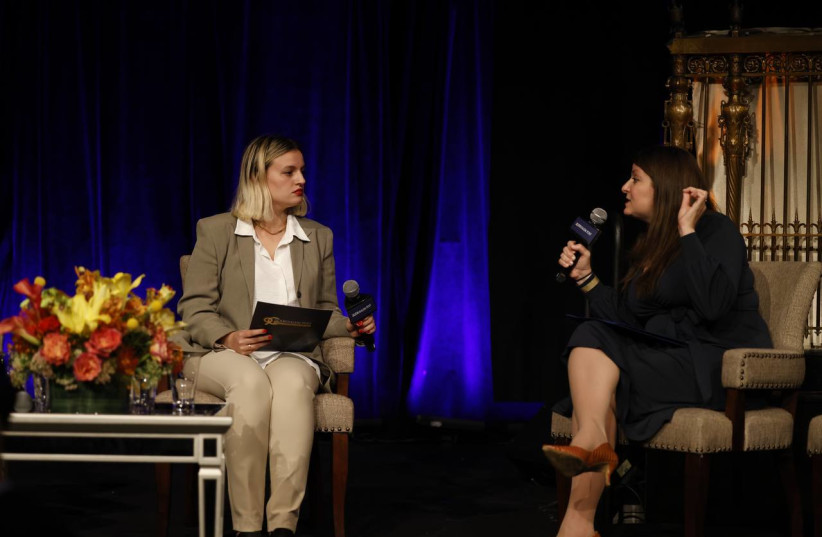As Iran’s nuclear threats loom large over the Middle East, a key factor in countering them is the security capability of the US and Israel’s allies in the region.
Supporting security capacity-building in the area is one of Mira Resnick’s crucial tasks.
“Our continued engagement in the Middle East is really all the more important,” the deputy assistant secretary of state for regional security in the Bureau of Political-Military Affairs said during a recent trip to Dubai. “Increasingly complex global challenges demand strong partnerships because we know that we cannot act alone, and we face global problems whose consequences shape security at a regional level.”
“Increasingly complex global challenges demand strong partnerships because we know that we cannot act alone, and we face global problems whose consequences shape security at a regional level.”
Mira Resnick
In the Bureau of Political-Military Affairs, Resnick oversees the Office of Regional Security and Arms Transfers, which, according to the State Department, “manages over $40 billion annually in government-to-government defense equipment transfers through foreign military sales, third-party transfers and excess defense articles.”
Resnick is also in charge of the Office of Security Assistance, which is responsible for $6.5b. in US security assistance.

Earlier this month, Resnick participated at The Jerusalem Post Conference in New York and said the US is interested in being involved in a joint regional missile defense against Iran.
“This is something the US would want to be part of,” Resnick said. “I think there’s a will, and it would be very exciting.”
Resnick cited Iran’s “very destabilizing role in the region” as a reason for US support for defense efforts.
The US supports Israel, regional stability in the Middle East
When it comes to Israel’s defense, she said, “the US is absolutely supportive of Israel,” citing the $3.8b. in defense aid it provides Israel annually, in addition to the $1b. to replenish the Iron Dome missile-defense system last year. “We will make sure Israel can continue to defend itself and respond to the many threats that surround it,” Resnick said.
A driver of bipartisan consensus, she has worked on a wide range of topics, such as weapons transfers, sanctions, human rights, and foreign assistance.
Resnick spoke at the conference enthusiastically about Israel’s expanding its diplomatic relations throughout the Middle East.
“It’s an exciting time,” she said. “We will continue to look for security cooperation because these [countries] do respond to the threats Israel and its neighbors face.”
Those partnerships need to expand into other areas in order to be sustainable, said Resnick, citing ties in trade, sports and other areas.
“This is something the US wants to foster,” she said. “There’s no silver bullet to this challenge, and we’ll need to work together.”
